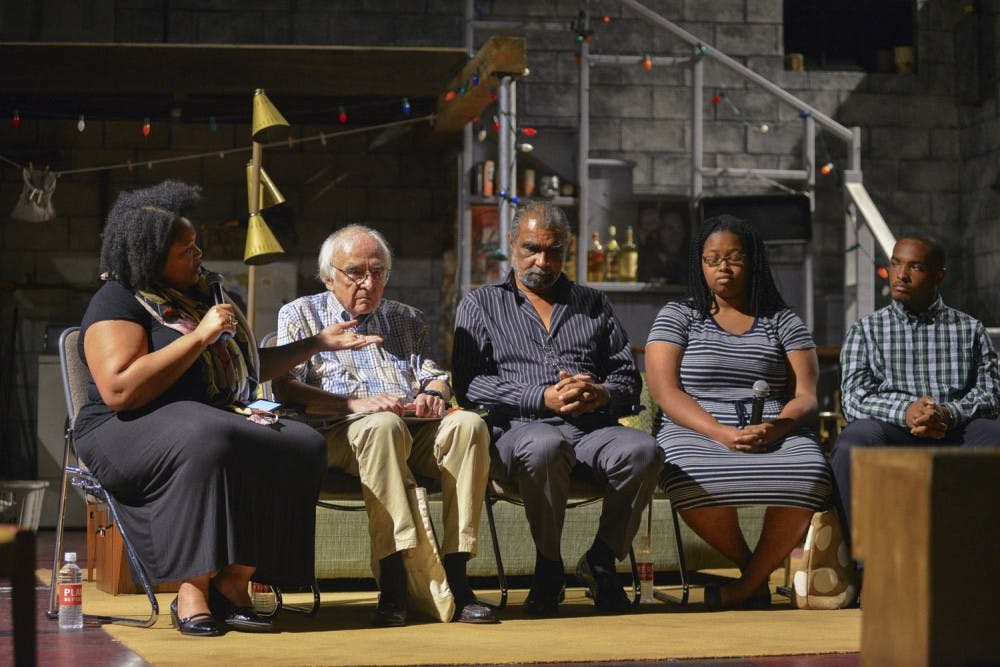The two week-long theatrical run of "Detroit ’67" is coming to an end as the PlayMakers Repertory Company presented their final performance at Paul Green Theatre Sunday afternoon.
Since the play’s opening at UNC on Sept. 14, the play has continued to gain popularity and acclaim after every showing. Written by playwright Dominique Morisseau, this historical drama tells a story surrounding the themes of love, family, friendships, civil rights and racial unrest during a time of extreme hateful violence. Dramatizing the events of the 1967 Detroit riots, the narrative follows Lank (Myles Bullock) and Chelle (Rachel Christopher), two siblings who are simply trying to create a better life for themselves and their loved ones during such a convoluted juncture in US history.
Overall, the audience reception for the performance has been overwhelmingly positive, noting the play’s relevance to current events as a major component for its success.
“I was really enthralled by it,” Ariana Rivens, a junior psychology major, said. “I thought it was great performatively, but also the topic was very relevant.”
This reference to current events alludes to the violent protests that are currently occurring in Charlotte, which were a response to a police officer fatally shooting a man in the parking lot of a Charlotte apartment complex. Police brutality is a major story element within the play.
“Being kind of confronted with Charlotte was definitely emotionally jarring in a way,” Rivens said. “But I enjoyed it.”
Another forceful impact the play had was the connection of the past to the present and the future, especially the comparison of Detroit in 1967 to Charlotte in 2016.
“It is always good to be informed by your history,” said Brandon Yelverton, a junior political science and sociology double major. “Your past definitely affects your present and the future. I thought the themes that were expressed were done very well.”
The drama is driven by its diverse, yet powerful stage performances, headlined by the characters of Lank and Chelle. They both exhibited a form of likeability that benefits the qualities of a character. However, the supporting characters also demanded a strong presence on stage, even at times stealing the audience members’ attention for the short duration of time while they are on stage.




